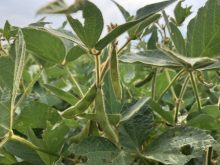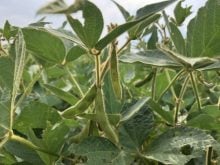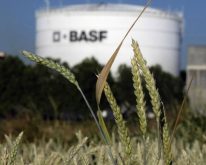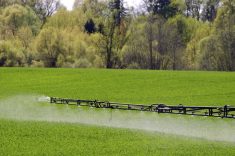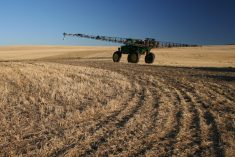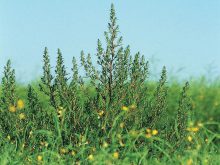Chicago | Reuters — In a blow to manufacturers Monsanto and BASF, Arkansas state lawmakers voted on Friday to bar sprayings of a controversial weed killer after mid-April to protect farmers from potential crop damage.
Arkansas will prohibit the use of herbicides based on dicamba from April 16 to Oct. 31, the strictest state limits imposed on the product after it was linked to millions of acres of U.S. crop damage last year.
The ban makes it less attractive for farmers to buy soybean and cotton seeds that Monsanto engineered to resist dicamba because the crops are designed to be sprayed with the chemical during the summer growing season.
Read Also
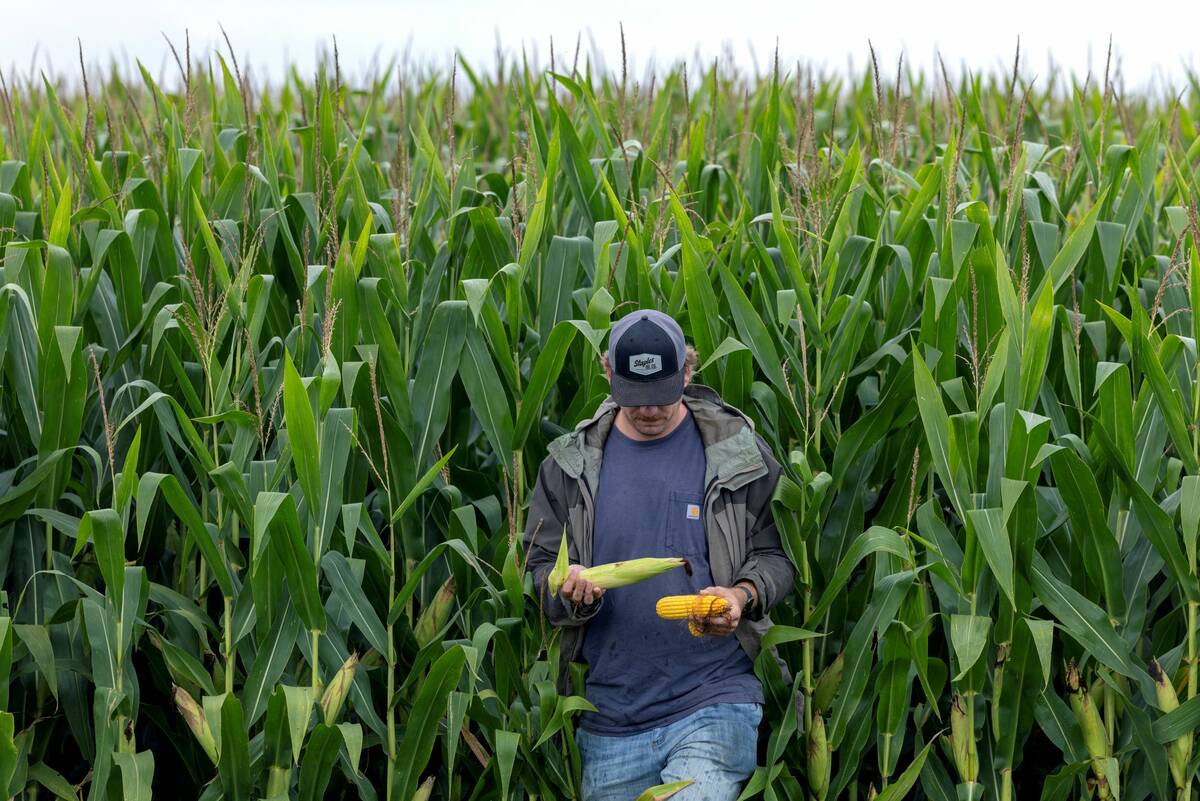
The U.S. corn crop could be the biggest ever. That’s terrible news for America’s farmers.
The USDA predicts a record corn crop for U.S. farmers, who question the agency’s accuracy amidst high debt and low crop prices.
Monsanto is banking on its dicamba-based herbicide and soybean seeds engineered to tolerate it, called Xtend, to dominate soybean production in the U.S., the world’s second-largest exporter.
The U.S. faced an agricultural crisis last year caused by new formulations of dicamba herbicides. Farmers and weed experts said the products evaporated and drifted away from where they were applied, hurting crops that could not resist them.
Arkansas farmer Reed Storey, who said his soybeans were among those damaged, wants the agrichemical companies to develop dicamba products that drift less.
“Until they can find a newer formulation, then I’m completely tickled pink with the decision,” he said.
Monsanto and BASF say their dicamba-based herbicides are safe when used properly. They opposed the ban in Arkansas and have said it will hurt growers there by removing a tool to fight stubborn weeds.
Monsanto, which is being acquired by Bayer for US$63.5 billion, has also sued Arkansas to stop the ban.
Arkansas blocked sales of Monsanto’s product, called XtendiMax with VaporGrip, in 2017 because the company did not provide testing data that state officials wanted.
“It is distressing that we’re in an environment in Arkansas where bringing the most modern tools to farmers is difficult,” said Scott Partridge, Monsanto vice-president of global strategy.
Other farm states, including Minnesota, Missouri and North Dakota, have imposed limits on dicamba sprayings for 2018 in an attempt to prevent a repeat of the crop damage last year.
The U.S. Environmental Protection Agency (EPA) last fall also revised the registration for Monsanto’s XtendiMax, making it a restricted use pesticide (RUP) and requiring all applicators to complete training before applying the product in 2018.
Still, Monsanto projected before Friday’s move by lawmakers in Arkansas that farmers would grow Xtend soybeans on 40 million acres this year, which would be double from 2017 and account for 44 per cent of all U.S. soybean plantings.
In an open letter to growers published Wednesday, Monsanto’s chief technology officer Robb Fraley said “the majority of growers saw tremendous results” with the company’s Roundup Ready Xtend system in 2017.
In 2018, he wrote, the company plans to distribute about a million spray nozzles “at no cost to grower customers” ahead of the spraying season, and is also developing an app to “help applicators create and retain application records and identify weather conditions conducive for successful application.”
— Tom Polansek reports on agriculture and agribusiness for Reuters from Chicago. Includes files from AGCanada.com Network staff.



